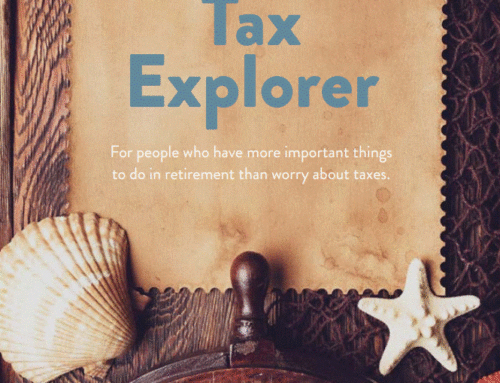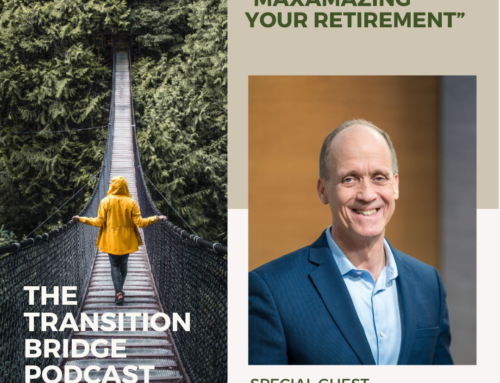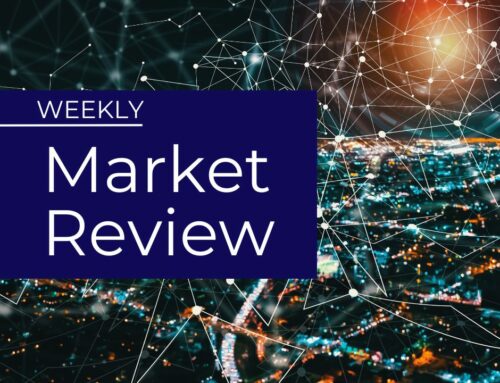 “Life, liberty, and the pursuit of happiness” is a cornerstone of the American Dream and perhaps better than any other phrase, condenses the value system of our country. Wealth and prosperity are among the fundamental goals we are free to pursue in this great country we are privileged to call the land of the free.
“Life, liberty, and the pursuit of happiness” is a cornerstone of the American Dream and perhaps better than any other phrase, condenses the value system of our country. Wealth and prosperity are among the fundamental goals we are free to pursue in this great country we are privileged to call the land of the free.
In our society that is so focused on finances, money empowers us and gives us a sense of freedom to participate in it. Retirees who no longer have the responsibilities of work and young family-life are free to do whatever they wish with their unlimited discretionary time—whatever they want, whenever they want, with whom they want as long as they are not limited by their health and abilities…or finances. Greater financial wealth provides more flexibility for folks to do what they desire without limitation. However, it is important not to equate financial freedom and the standard living it affords with “Quality of Life.”
Standard of living is a financial measuring stick that links lifestyle choices with money. The details of one’s lifestyle can be impacted by finances and the standard of living someone can afford. Those who enjoy adventure and various cultures will have more flexibility choosing the places they visit and what they do given the more money they have, but they may still have a similar lifestyle regardless of how much they have to spend. They may travel to different local spots and try different cultural foods, activities and atmospheres even when they don’t have the money to travel abroad. Quality of life has more to do with the perspective on life and how individuals are connected to whatever is most important to them. Although a standard of living can impact one’s outlook on life, how retirees (and individuals in every stage in life) view theyir quality of life, need not be dependent on finances.
Quality of life is tied to experiencing enjoyment and fulfillment, regardless of one’s financial situation. There’s a simple, basic recipe for a truly fabulous quality of life: 1) having a satisfying identity with 2) a meaningful life purpose, 3) connected with people one loves, and 4) having a sense of wellbeing or peace. ) Still, money can enhance the measure of quality of life to the extent it empowers: 
· meaningful experiences with special people (by how money is spent),
· accomplishments (through money that is accumulated), and
· funds an impact that is important for someone to have on another (through a transfers of wealth).
In these instances, when money does enhance quality of life, it is by connecting wealth to whatever is truly important to an individual. Financial planning is essential in determining how much can be spent while maintaining financial sustainability throughout one’s life.
Financial freedom is not simply having the money to do whatever is desired, but to be able to use it to enhance quality of life—spending or transferring it to align with whatever is most important to an individual. Financial planning that considers deep-seated values that account for who we are and what we value the most is critical to integrating finances with quality of life. At the same time, it’s also freeing to realize that finances (although they can be empowering) are not necessary for life to be rich and fulfilling.
AUTHOR BIO: Len Hayduchok, CEO and owner of Dedicated Financial. As a fiduciary and Certified Financial Planner™, Len offers his wealth of experience to guide others through the mire of Financial and Retirement Planning. As a Certified Life Coach, he pairs his financial expertise with a heart to help others who want to make the most of their retirement plan. Len’s latest campaign, MaxAMAZING™ Your Retirement, combines both his financial and life coaching expertise into free resources to help guide retirees into a more enjoyable and fulfilling season of life. For more free, helpful resources, Len offers both his websites for public access: www.DedicatedFinancialServices.com | www.MaxAMAZING.com. (Investment Advisory services offered through SGL Financial, LLC









